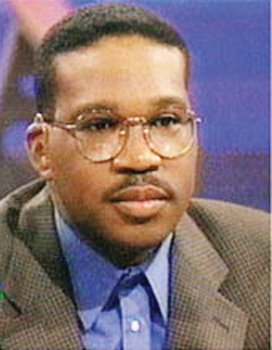Young, gifted, black and abused
4/2/2015, 10:15 p.m.
Walter L. Fields
In the course of one week, we witnessed the burden of being young, gifted and black.
First, the Little League baseball phenom Mo’ne Davis was insulted by a white college baseball player who called the abundantly talented young girl a ‘slut’ in a tweet in response to news that Disney was planning to make a movie about her incredible rise to fame. The player, Joey Casselberry, quickly retracted the tweet in the face of a wave of criticism in cyberspace and was promptly dismissed by the Bloomsburg University team.
Then there were the toxic tweets from Jenna and Jacque Huggins, daughters of West Virginia head basketball coach Bob Huggins, calling Maryland basketball player Dez Wells a rapist. The West Virginia team defeated Maryland in an early round of the NCAA championship tournament. The Terrapins star guard had been kicked off the Xavier University team in 2012 after being accused of sexual assault. A grand jury decided charges against Mr. Wells were not warranted and he later settled a lawsuit he brought against Xavier.
Not far from the University of West Virginia and the University of Maryland, a young, black University of Virginia undergraduate honors student was accosted by Virginia ABC agents. Martese Johnson had his face bashed into the pavement and bloodied by the agents outside a pub near the campus. The episode was captured on videotape. Mr. Johnson was not resisting arrest when the agents pummeled him, causing injuries that required 10 stitches in his head.
What these three incidents have in common is obvious — Mo’ne Davis, Dez Wells and Martese Johnson are all young and black. Lurking just beyond the obvious tie is the quality of their blackness — they are all gifted and confident in their identities. It seems in 21st century America, to be young, gifted and black is now a crime, an offense against society’s typecasting of black youths as violent, unintelligent and worthless.
The intensity of these assaults — oral and physical — is sharpened by decades of conditioned hate, forged by theories of black inferiority and white supremacy. The venomous words electronically spat upon Ms. Davis and Mr. Wells, and the force leveled upon Mr. Johnson, are simply the byproducts of the permissiveness of racism in our nation.
The success of Ms. Davis, Mr. Wells and Mr. Johnson defies and counters the mythology of black depravity. And it is success that triggers the backlash, awakens the racist beast and brings to the surface sentiments that heretofore might have been expressed only in private conversations. By succeeding, these young people frustrate those who harbor bias and leave them little room to fully exercise their demons.
This is the cruel joke played upon black youths in America. The public message communicated to young black women and men is to pursue excellence and rise above challenges and to be exemplary in their civic lives. That message is countered by the aural and visual assault upon their sensibilities that reduces them to thugged out and hyper-sexualized caricatures.
It is a sobering reality that a generation that many hoped would truly be post-racial — as if that will ever be the case — is more deeply entrenched in racism than the prior generation. And institutional racism has a vice grip upon young black people that is more consequential than white mobs of decades past.
It’s enough to make me take a trip to the nearest Starbucks. I’ll take a latte with some truth talk.
Walter Fields is Executive Editor of NorthStarNews.com.







